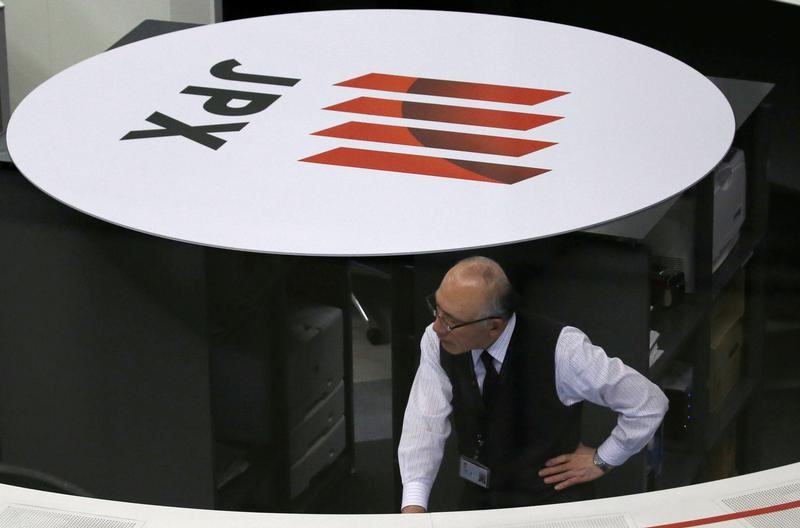
© Reuters.
By Ambar Warrick
Investing.com– Asian stock markets sank on Tuesday, with the Nikkei logging steep losses after the Bank of Japan unexpectedly tweaked its ultra-dovish stance and struck a less accommodative tone than markets were expecting.
The index slumped nearly 3% to a two-month low after the BoJ within which it allows yields on the benchmark government bonds to fluctuate. The move lends some credence to recent speculation that in Japan will force the government to reassess the BoJ’s outlook on price pressures – a scenario that could eventually result in the central bank pivoting away from its ultra-dovish policy.
While the central bank and its quantitative easing policy, fears of an eventual tightening in policy weighed on local stocks. Japanese markets have enjoyed an ultra-dovish stance from the BoJ for nearly a decade.
The signals from the BoJ rattled broader Asian markets, given that they come shortly after hawkish moves by several other major central banks. The , and the all raised interest rates last week, and signaled more hikes as they move to control runaway inflation.
The signals drove up concerns over a potential recession in 2023 stemming from high inflation and rising interest rates. This greatly battered sentiment toward Asian markets, putting them on a three-day losing spree.
China’s and indexes fell 2% and 1.4%, respectively, after the People’s Bank at historic lows. While the move shows that the Chinese government is maintaining policy at accommodative levels, local stocks were sold off on uncertainty over a Chinese economic reopening, especially as COVID-19 cases in the country spike to unforeseen levels.
Technology-heavy bourses in Asia also logged steep losses on the prospect of higher interest rates. Hong Kong’s index and the index tumbled around 1.9% each, while South Korea’s shed 0.8%.
India’s and indexes also fell 1% each as losses in major technology stocks weighed.
Most Asian markets are trading substantially lower for the year, as rising interest rates drove capital away from high-risk investments. Fears of a coming recession have also greatly battered hopes for a “Santa Claus” rally towards the end of the year.


Be the first to comment